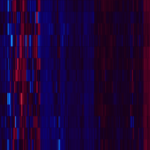*************************
English version at the end
*************************
Le Hub de Bioinformatique et de Biostatistique, a été créé en 2015 pour apporter un soutien aux Unités et Plateformes de l’Institut Pasteur dans ces domaines. Le Hub assure cette mission par le biais de :
- Collaborations sur des projets scientifiques soumis par les équipes de recherche de l’Institut,
- Formations dédiées pour le personnel de l’Institut Pasteur de Paris ou des autres Instituts Pasteur du réseau international,
- Développements d’outils et d’applications à destination de la communauté scientifique,
- Interactions directes sous la forme de questions simples.
Dans ce cadre, et afin de renforcer son pôle de statistique, le Hub recrute un·e ingénieur·e de recherche en biostatistique, pour permettre la prise en charge des demandes croissantes en bioanalyse.
Missions :
La mission principale est d’apporter un soutien aux unités de recherche et plateformes de l’Institut Pasteur pour l’analyse statistique et la bioinformatique dans des domaines variés de la recherche biomédicale. Ce soutien prendra plusieurs formes :
- collaborer sur des projets d’analyse soumis au Hub de Bioinformatique et Biostatistique,
- conseiller et guider dans l’utilisation de méthodes et outils d’analyse existants,
- maintenir une veille bibliographique active et évaluer les outils et méthodes publiés,
- développer lorsque nécessaire des méthodes et outils d’analyse nouveaux,
- participer à l’élaboration et la mise en œuvre de projets collaboratifs de type ANR
- assurer le transfert d’outils et de compétences vers les unités et plateformes,
- donner des formations en biostatistique et bioinformatique,
- interagir avec le Réseau International des Instituts Pasteur (RIIP, 33 instituts dans le monde entier), en particulier pour la mise en place de formations et l’analyse de données.
La personne recrutée sera plus particulièrement destinée à prendre en charge, au moins en partie, des projets d’analyse de données quantitatives issues de séquençage à haut débit, nécessitant des compétences solides en statistique. A terme, l’ingénieur·e sera amené·e à mettre en œuvre des procédures bioinformatiques en amont de l’analyse statistique (p. ex. analyse de données d’expression, épigénomique, épitranscriptomique, single cell, etc.). Des connaissances dans ces domaines constituent un atout.
Compétences essentielles :
- La maîtrise des outils statistiques pouvant s’adapter aux données de grandes dimensions est indispensable (analyses uni-/multivariées, inférence, modélisation statistique, méthodes linéaires/non-linéaires, regroupement/clustering, apprentissage statistique, etc.).
- Très bonne maîtrise de R
- Expérience d’enseignement de la biostatistique ou de domaines apparentés appréciée
- Expérience en conduite de projet de recherche
- Bonne connaissance des processus de planification expérimentale (dont les analyses de puissance, identification des facteurs de confusion, etc.)
Compétences appréciées :
L’ingénieur·e ayant vocation à analyser des données en partie issues de méthodes de séquençage récentes, les connaissances suivantes constituent des atouts :
- Connaissance de Python ;
- Expérience ou bonne connaissance d’analyse de nouvelles techniques de séquençage ou de nouveaux types de données. Par exemple, des séquençages de lectures longues (long reads), de l’ATAC-seq, du Ribo-seq, des données d’analyse en cellule unique (single cell) ou tout autre nouveau type de données en lien avec la biologie ;
- Maîtrise des outils et méthodes classiques d’analyse de données NGS souhaitée (contrôle de qualité, assemblage, alignement, quantification, expression différentielle, recherche de variants, etc.).
Qualités attendues :
- Sens du travail en équipe
- Goût pour le travail en collaboration
- Rigueur et méthode
- Force de proposition et prise d’initiative
- Adaptabilité
- Qualités relationnelles
- Motivation à se former sur de nouvelles méthodes
- Autonomie
- Goût pour les activités de service, sens de l’implication
Profil :
Doctorat Bac+8 en biostatistiques ou domaines apparentés, ou Bac +5 avec 3 ans d’expérience
Le Hub et l’Institut Pasteur s’engagent à promouvoir la parité, toutes les candidatures sont les bienvenues, sans distinction de genre ou d’origine.
Pour postuler :
Cliquer sur le lien suivant et sélectionner le profil « Statistique » lorsqu’il sera proposé
https://hub-jobs2022.pasteur.cloud/
Vous aurez besoin d’un CV à jour, et d’une lettre de motivation. Vous pourrez ajouter les adresses mail de référents (trois maximum) que nous contacterons automatiquement lors du dépôt de votre candidature.
Contact:
Les demandes de renseignements peuvent être adressées à Christophe Malabat (christophe.malabat (at) pasteur.fr) et Pascal Campagne (pascal.campagne (at) pasteur.fr).
******************************************
English version
The Hub of Bioinformatics and Biostatistics was created in 2015 in order to provide analytical support to research units and platforms at the Institut Pasteur. The Hub is committed to this mission through:
- Collaborating on scientific projects, submitted by research teams of our institute, to the Hub.
- Training scientific staff from the Institut Pasteur Paris or from other institutes of the international network of Instituts Pasteur.
- Developing tools and applications to be shared with the broader scientific community
- Interacting directly with scientist upon specific inquiries
The Hub is hiring a research engineer in biostatistics to consolidate its team of statisticians in response to increasing needs in data analysis.
Assignments:
Our main role is to provide support to research units and platforms of the Institut Pasteur with statistical analysis and bioinformatics, in various fields of biomedical research. This is achieved through:
- collaborating on analysis projects that are submitted to the Hub of Bioinformatics and Bioistatistics;
- advising and providing guidance on the use of existing analytical tools and methods;
- keeping up to date with the latest methods and possibly benchmarking them;
- developing new analytical tools and methods, when needed;
- taking part to grant writing and project deployment;
- transferring skills and tools to research units and platforms;
- sharing knowledge, through training sessions in Biostatistics and Bioinformatics, notably;
- interacting with the International Network of Instituts Pasteur (33 institutes worldwide) especially in organising training sessions and analysing data.
The research engineer we are hiring will be partly in charge of projects involving quantitative data generated with high-throughput sequencing technologies, which requires a strong statistical background. At some point, the research engineer will have to deal with bioinformatic data processing that is performed prior to statistical analysis. Knowledge and interest in these fields are an asset.
Essential expertise:
- proficiency in statistical data analysis that may be applied to high-dimensional data (uni-/multi-variate analyses, inference, statistical modelling, linear and non-linear methods, clustering, machine learning, etc.)
- mastering the R language
- experience in teaching biostatistics or training in related fields is appreciated
- experience in driving research projects
- knowledge and interest in experimental planning (e.g., power analysis, identifying confounding factors, etc.)
Welcome but not required:
- knowledge in Python
- experience or knowledge in new sequencing technologies or novel types of data; for instance, long-read sequencing, ATAC-seq, Ribo-seq, single-cell sequencing or any emerging data types related with Biology.
- skills in classic methods and tools to analyse NGS data (e.g., quality control, read mapping, assembly, differential expression, variant discovery, etc.).
Expected soft skills:
- ability to work in a team (teamwork skills);
- sense of collaborative work;
- thoroughness and organising skills;
- great sense of initiative and anticipation;
- Adaptiveness;
- communication skills;
- willingness to continuously learn new methods;
- self-reliance / autonomy;
- endeavour to solving issues and sense of service activities.
Education:
PhD in Biostatistics or in related fields, Master2 degree with 3 years of professional experience.
The Hub and the Institut Pasteur are committed to promote parity; all applications are welcome without distinction of gender or origin.
To apply:
Click on the following link and select the corresponding profile “statistics” when this will be proposed:
https://hub-jobs2022.pasteur.cloud/
Please, submit your updated CV and a cover letter (motivational letter). You will be able to indicate contact information for reference letters (3 max.). They will be automatically contacted as soon as you validate your application.
Contact:
Informal inquiries about this position may be addressed to Christophe Malabat (christophe.malabat (at) pasteur.fr) and Pascal Campagne (pascal.campagne (at) pasteur.fr).



